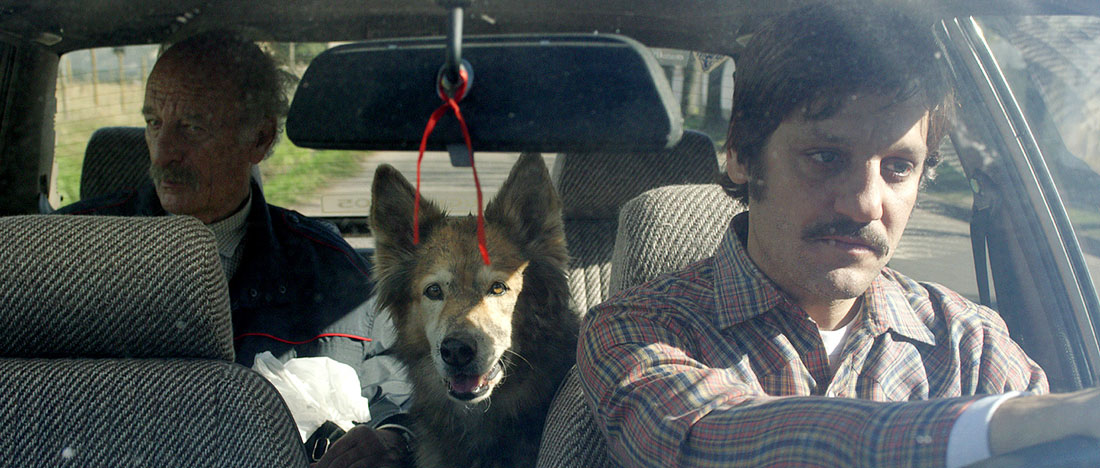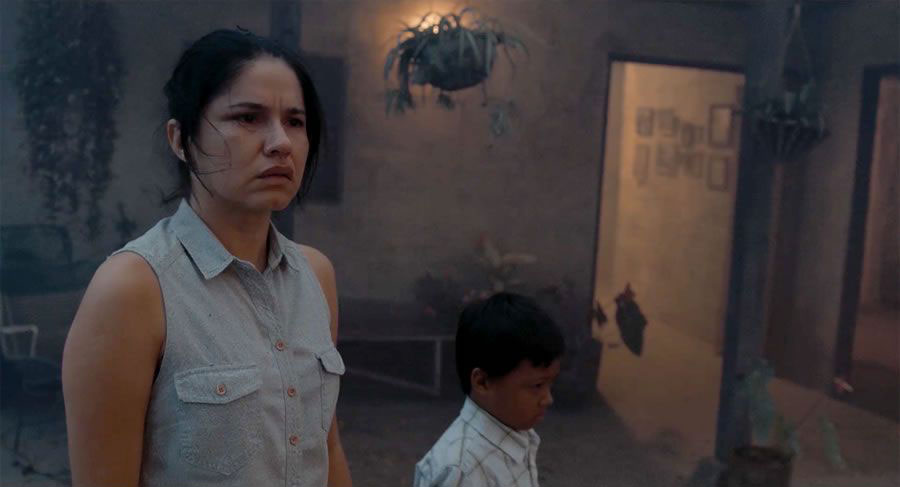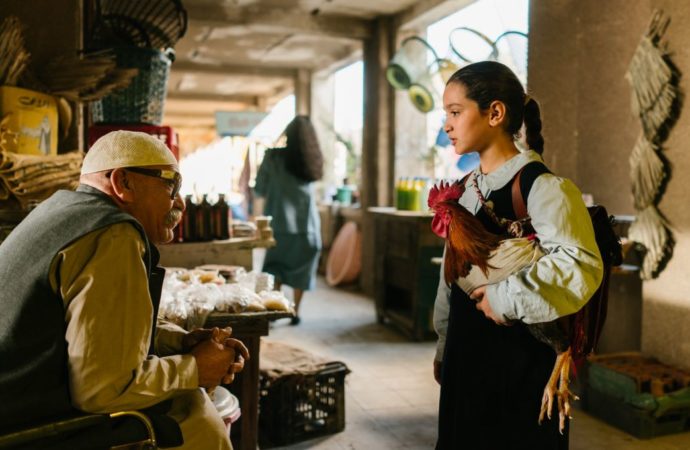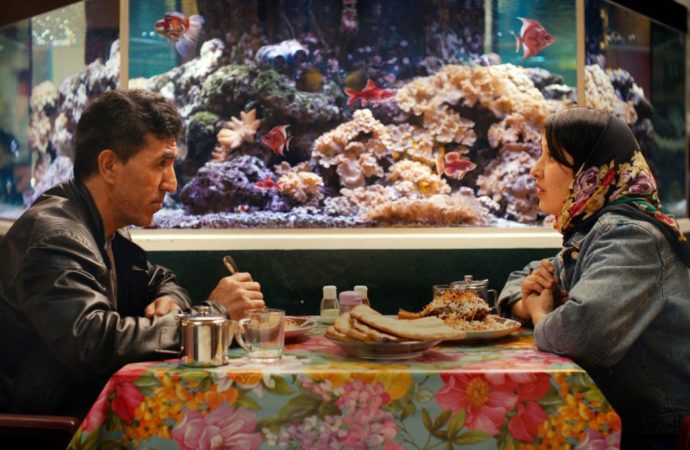The main competition of the 56th Thessaloniki International Film Festival this year comprised 15 very different films which, paradoxically, had a common narrative strain of loneliness and isolation.
Four of these films from Latin America were consistently very varied and innovative, thereby reminding us of the vastness and divisions of a world too often assimilated conveniently for the global media. Two were road movies; the other two were very much grounded in one location, thus journeys of a different kind. Three of them had already won prestigious awards and all four were bestowed accolades in Thessaloniki.
Road movies have been continually popular from early genre westerns, the finest ones taking the spectators on their own journey. The Argentina-Netherlands-Qatar co-production Road to La Paz (Camino a La Paz) accompanies an old Muslim man and an auxiliary taxi driver from Buenos Aires to La Paz, where the former plans to travel on to Mecca. The journey covers thousands of miles as two very different characters form an unlikely relationship in which the macho taxi driver becomes slowly enlightened in this original and tender take on an old sub-genre format. First-time director Francisco Varone also wrote the script. He previously directed commercials in Argentina, the USA and Mexico, receiving awards in Cannes and San Sebastian. Road to La Paz had somewhat surprisingly not won major awards so far; in Thessaloniki it received the Special Jury Award – Bronze Alexander.
600 Miles (600 Millas) is Gabriel Ripstein’s first directed feature and he also co-scripted and co-produced. It is noteworthy for the involvement of Tim Roth who was co-executive producer and lead actor. The plot revolves around a Mexican cartel where a young amateur smuggler kidnaps a detective (Roth) and drives him over the Mexican border to face his ruthless but surprised boss. The first half of the film exemplifies the precariousness of illegal gun trafficking from the US to Mexico in a compelling and naturalistic way, skillfully editing the long hours of tension and uncertainties in isolated and unforgiving places. The second half plays like a typical road movie, maintaining a subtle tension to the end through sparse dialogue and quiet desperation. During the 600-mile drive, the young vulnerable smuggler and the hardened detective start to build a relationship of trust and the psychological game between the two men, as well as surprise plot twists, keeps us transfixed throughout. The no-man’s land conveyed in the cinematography by Alain Marcoen suitably compliments the tension, capturing an unfamiliar reality that civilization avoids. It won Best First Film at the 2015 Berlinale, Best Mexican Film at the 2015FICG, Mexico and now the Best Director prize at Thessaloniki.
The Lorenzo Vigas directed Venezuela-Mexico co-production From Afar (Desde Allá) follows a similar psychological path to 600 Miles, between an older man and a naïve brutal youth, but with a very different scenario. Here the playing field is much grounded. Set in the unforgiving metropolis of Caracas, the leading protagonist, offering financial imbursement, habitually lures young men to his apartment in order to look at them without touching. He becomes obsessed with one of his clients, a young hoodlum, and the film subsequently explores the developing relationship between the two lead characters. Questioning but never explaining the ultimate agenda of the older man, the film refutes any simplifying of its characters and becomes an interesting but, at times, frustrating enigma, while opening up the private facets of human behavior. The director also co-wrote the story on which From Afar, his first feature following many documentaries and shorts is based. The film garnered enough critical praise to win the Grand Prize at this year’s Venice IFF and at Thessaloniki Lorenzo Vigas won the Best Screenplay Award with the Best Actor Award going to Alfredo Castro.
Land and Shade (La tierra y la sombra) is set in a sugarcane plantation in Colombia and depicts a family struggling for survival. A rural worker returns home after many yearsto be reunited with his ex-wife and sick son, also meeting his daughter-in-law and his grandson for the first time. The film captivates with its sparse dialogue, slow pacing, and seemingly emotionally detached characters that come together in the face of their struggles. First-time director César Acevedo shows modern-day Colombian society through masterfully crafted symbolism and realism. A co-production of Colombia, France, The Netherlands, Chile and Brazil, it also underlines the necessity for co-production in order to get films made in certain countries. In reward, it won the prestigious Camera d’Or in Cannes this year and in Thessaloniki was honored with three awards: the Hellenic Parliament TV Channel Human Values Award, the Fischer Audience Award and the Special Jury Award – Silver Alexander, coming second to the Icelandic film Rams (Hrutar) by Grimur Hakonarson.











No one has posted any comments yet. Be the first person!